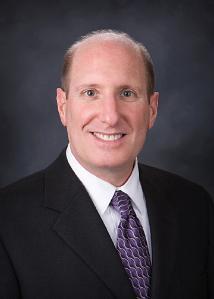We’re Liveblogging the Legislative Preview
Thursday morning The Associated Press is hosting a legislative preview event in advance of the session that starts January 9th. We’ll be there liveblogging and you’ll be able to join the conversation at our homepage.
Here’s the agenda:
9:00 a.m. Gov. C.L. “Butch” Otter
10:00 a.m. Senate President Brent Hill, (R-Rexburg); House Speaker Lawerence Denney, (R-Midvale); House Minority Leader John Rusche, (D-Lewiston) and Senate Minority Leader Edgar Malepaei (D-Pocatello) will discuss the upcoming session, with the budget likely to dominate the conversation. Moderated by AP Statehouse reporter John Miller.
11:00 a.m. To Exchange or Not to Exchange. The debate over Idaho’s acceptance of federal money to develop a state health insurance exchange is nothing new. Lawmakers debated for hours last year on a small federal grant to fund preliminary work on developing an exchange, a central component of the federal health care overhaul. Since then, Idaho has been awarded $30 million for development, and Gov. Otter has agreed to accept it, but Republican lawmakers have other ideas. Panelists include Rep. Vito Barbieri, (R-Dalton Gardens); Bill Deal, director of the Idaho Department of Insurance; and Alex LaBeau, president of the Idaho Association of Commerce and Industry. Moderated by AP Statehouse reporter John Miller.
Bogus Basin Ski Area Cuts Pay, Hours and Jobs
The lack of snow is hurting Boise’s local ski hill. The Idaho Business Review reports Bogus Basin Mountain Recreation Area cut all year-round workers’ pay by 10 percent as it heads for the latest opening in the resort’s history. IBR.com reports the ski area will also eliminate hours and positions.
Bogus is usually covered in snow and in full operation at this time of year. But with almost no snowfall, and very limited snowmaking, the resort is closed and has lost an estimated $2 million so far in ticket sales.
In a board meeting with all of the resort’s year-round employees Jan. 2, General Manager Mike Shirley and Chief Financial Officer Alan Moore announced they’ll both work without pay “for an extended period.”
About a half-dozen other positions among the 35 year-round jobs at Bogus will also be eliminated, Shirley said Jan. 4. Cutting back on pay and staffing and deferring other payments will save the resort $600,000 or $700,000 this year, Shirley said.
The latest opening in Bogus history is Jan. 6. That happened in 1989. It appears likely Bogus will open later than that this year, as the National Weather Service 10-day forecast on Jan. 4 called for mostly cloudy skies but a low chance of precipitation. – Idaho Business Review
Other states that rely on the ski season to boost winter tourism are finding ways to lure skiers from snow-less states. Big Sky Resort near Bozeman, Montana posted this on its website, offering Epic Season Pass holders in Colorado the chance to ski free at Big Sky (which boasts 3,050 acres of snow covered ski hill) during the month of January.
Tobacco, Education Lobbyists Top Spenders During 2011 Session
During the 2011 Legislative session 423 lobbyists registered with the Idaho Secretary of State. Those lobbyists represent 569 different organizations ranging from the senior citizens lobby AARP to Idaho potato growers.
Most lobbyists and the organizations they represent are required to register with the Secretary of State and file monthly expense reports detailing how much they spent on lawmakers for things like entertainment, food, advertizing and travel expenses. Lobbyists aren’t required to report their salaries, personal expenses or any other expenses that are reimbursed by their employer.
Here’s a list of the 30 top spenders from the 2011 session, January through May. (Annual numbers will be released at the end of the month)
Democrats, Republicans Working on Proposals to Boost Idaho Job Growth

Peter Dazeley / Getty Images
Idaho's unemployment rate was last measured at 8.5 percent, a two-year low.
Some of the Republican lawmakers we’ve spoken with over the last few weeks have said the path to job growth in Idaho is through tax relief. Rep. Mike Moyle (R-Star) says Idaho’s tax rates are hurting private sector growth. “We’re higher than every state around us,” Moyle says, “which is not a good place to be when we’re trying to get businesses and jobs to come here.”
Moyle is working on a bill for the 2012 session to lower Idaho’s tax rates. He wouldn’t get into specifics.
The Senate President Pro-Tem says the key to job growth is a stable tax system, which for him doesn’t necessarily mean lowering rates. Sen. Brent Hill (R-Rexburg) says new jobs will be created when businesses can rely on Idaho’s tax policies.
Essential StateImpact: Year in Review

Lauren Burke / Getty Images
Thank you for making our first four months a success! See you next year...
StateImpact Idaho launched in September 2011. While we’ve only been live for the last four months, we thought we’d look back at the five most-read stories during StateImpact Idaho’s first year.
- In Rural Idaho, the Recession Changes One Town’s Fate: Before the recession, rural Fairfield, Idaho was planning for growth. Now, it’s dealing with a double-digit unemployment rate and trying to hold onto the business that already exist. Molly Messick visited Fairfield in November to tell a story not uncommon to many rural towns in America.
- In the Wake of Foreclosure, a Debt That Won’t Die: Many people who go through foreclosure assume losing their home is the last step in the process. And for many, its the definition of hitting rock bottom. But some former homeowners find themselves in an even tighter spot when lenders pursue them for the debt that remains. This is a story about what can happen after foreclosure, and why banks are increasingly going after what’s left. Continue Reading
When it Comes to Taxes, All Ideas are on the Table
The talk of raising, lowering and changing various taxes in the state has already started with a couple of weeks before the 2012 legislative session kicks off. Each lawmaker I spoke with said Idaho’s corporate and income tax rates could stand to be lowered. Many differed on when and how to do it.
Idaho’s corporate tax rate is 7.8 percent and the individual rate is a graduated system ranging from 1.6 to 7.6 percent. Many Republicans, including Rep. Mike Moyle (R-Star) say Idaho’s tax rates are hurting private sector growth. “We’re higher than every state around us,” Moyle says. “Which is not a good place to be when we’re trying to get businesses and jobs to come here.” Moyle is working on a bill for the 2012 session to lower Idaho’s tax rates. He wouldn’t get into specifics.
Sen. Werk: Idaho Needs to Level the Playing Field for Business
The Idaho Legislature convenes January 9th. In advance of the session, we interviewed several legislative leaders and asked them about Idaho’s economy and what the state could be doing to boost growth and job creation.
Sen. Elliot Werk (D-Boise) was first elected in 2002. He’s one of seven Democrats in the Idaho Senate and made our list of most influential state lawmakers. On his website, Werk calls Idaho’s economy a “dismal mess”. He says the key to turning things around is education.
Q: What are your funding priorities?
A: The legislature needs to focus on funding the basic element that increases help for the middle class, which is education. Both K-12 and higher education. The shameless slashing of those budgets will do lasting and long term damage to Idaho’s economy unless that trend is reversed.
Q: Many of your Republican counterparts have also said education is their top priority, including the governor. Do you think the majority party has done an adequate job of funding education?
A: Well, I appreciate statements from the governor and my Republican counterparts indicating they prioritize education, the reality is their votes and their actions don’t show that in any way, shape or form. We really have a crisis in Idaho in terms of our overall structure for revenues. And the Republican Party has steadfastly refused to address the issues we have with revenues and inequities in the system so they have piled on cuts onto the middle class while they continue to enrich their benefactors continually with more breaks and more exemptions and more giveaways. Continue Reading
Sen. Cameron: Lawmakers Must Weigh Short-Term vs. Long-Term Economic Stimulators
The Idaho Legislature convenes January 9th. In advance of the session, we interviewed several legislative leaders and asked them about Idaho’s economy and what the state could be doing to boost growth and job creation.
Sen. Dean Cameron (R-Rupert) is chairman of the Senate Finance Committee and co-chairman of the Joint Finance Appropriations Committee. JFAC is the committee that shapes the legislature’s version of the state budget. He’s been a lawmaker since 1991.
Q: How will JFAC approach the budgeting process? Do you anticipate further budget cuts?
A: We certainly are seeing some improvement in our revenue stream. And I would remind you, the state’s revenue stream is really a lagging indicator of the state’s economic conditions. That’s always a little frustrating because sometimes the economy feels like its better but the revenue isn’t coming into the state as fast. So the revenue has been lagging behind our economic conditions, but there is some slight improvement. We believe with current forecast, we’re still yet to make a formal recommendation for the upcoming fiscal year. We believe it won’t be as difficult. It still isn’t great. We’re still below 2008 revenues. We still have agencies that are significantly funded below the levels they were in 2008 and 2009. And we don’t have any reserves left because we’ve used all the reserves to mitigate the reductions over the last three years. So, we’re in a little bit more of a precarious situation, but we don’t anticipate revenue further declining.
Essential StateImpact: Top Five Stories of the Week

Nic Taylor / Getty Images
In case you missed any of our stories this week, we put the most-viewed stories all in one place. Enjoy!
It was a busy week at StateImpact Idaho, and we saw a big boost in our site traffic. Thank you! Here’s a look at the five stories getting the most attention:
- Governor Otter: The State Can’t Reject a Federal Unemployment Benefit Extension: Extended benefits for jobless Idahoans are tangled in a Congressional debate. It’s unclear if a resolution will be met before extended benefits expire Dec. 31. But if they are, Idaho politicians don’t seem to agree on how to handle it.
- Governor Otter: Every Generation Deals with Joblessness and We Live Through It: Idaho is one of a handful of states where the number of people without jobs increased post-recession. Idaho’s Governor says the state is doing what it can to create jobs and unemployment won’t last forever. Continue Reading




